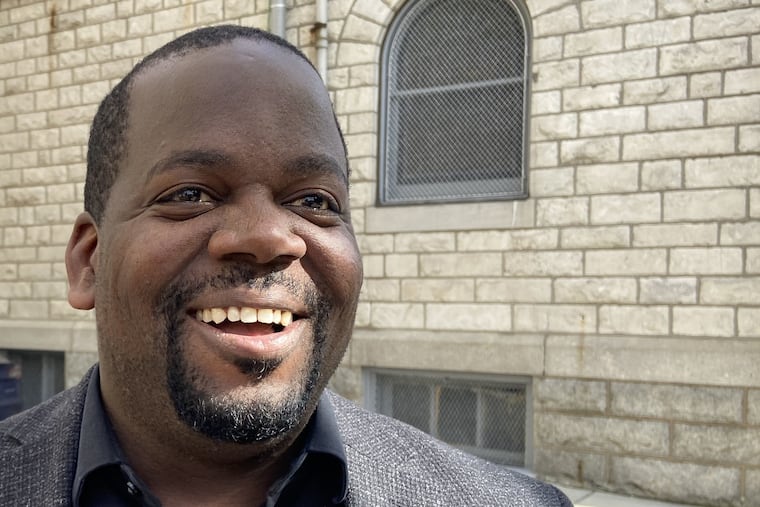Play On Philly founder Stanford Thompson is stepping down
Thompson will end his 13-year tenure as executive director of Play On Philly at the end of the school year, he announced to friends and supporters Tuesday.

Stanford Thompson, the Curtis Institute graduate and trumpeter who at age 23 launched a nationally renowned Philadelphia music program for students from underserved backgrounds, is stepping down from the organization he founded.
Thompson will end his 13-year tenure as executive director of Play On Philly at the end of the school year, he announced to friends and supporters last week.
“It’s a decision that’s been many years in the making,” said Thompson, 35, in an interview. “But it’s good to have a little bit of clarity for the organization and for myself. I think it’s a great time, Play On Philly being in really good shape, to make a transition and help the organization evolve.”
The group has already begun a search for a successor, said longtime board member Thomas Vernon.
Started as a program of the Philadelphia Youth Orchestra in 2010, Play On Philly soon split off on its own and, with the support of philanthropist Carole Haas Gravagno as co-founder, quickly grew. Today it serves about 400 students from pre-kindergarten through 12th grade at five sites in the city with before- and after-school music lessons and training.
Modeled on Venezuela’s El Sistema music program, Play On Philly’s philosophy lies in the intensity of the experience. Students attend the program five days a week, and a six-week program is offered in summer.
The question since its inception has been how to scale the program to reach more parts of the city.
“The next leader and the board will have to put their heads together, but it’s certainly ready and poised for growth,” Thompson said.
Said Vernon: “Assuming we can find [a successor to Thompson] approaching his dedication and competence, I don’t see a plateau at all.”
Thompson says he hasn’t determined what’s next for himself, but he has his eye on extending support for the development of musicians of color and from underserved backgrounds.
“What happens to these kids in college and beyond, especially those who want to continue in music? What are the types of opportunities and supports that exist beyond high school? There is an opportunity to think about what equity actually looks like in those spaces. At this moment I am trying to figure out exactly how to be a part of that.”
Play On Philly is funded almost entirely through private donations, which Thompson says since inception have totaled about $20 million — a third of it coming from beyond the tristate area, including a $1 million gift in 2021 from philanthropist MacKenzie Scott.
But raising money is always tough.
“It’s easy [for potential funders] to say things like, ‘What you do costs a lot of money,’ or they sit on the sidelines and say, ‘We want to see the organization do these two or three things before we get involved.’ That’s going to be the continuing challenge, to get people to invest time and money in these kids.”
Thompson can certainly point to his share of successes to help make the case.
“I think one of the things I’m really proud of is seeing the kids essentially form a family around classical music, and over 2,400 kids having a really meaningful experience.”
Particularly memorable were chances students had to collaborate with visiting artists like violinist Ray Chen, trumpeter Wynton Marsalis, and conductors Marin Alsop and Simon Rattle.
In 2017, a group of students from Play On Philly gave a performance to open the TED Fellows conference in Vancouver.
“To be in a space like that in front of a lot of influential eyes, that meant a lot — that our story in Philly could inspire so many people around the country.”